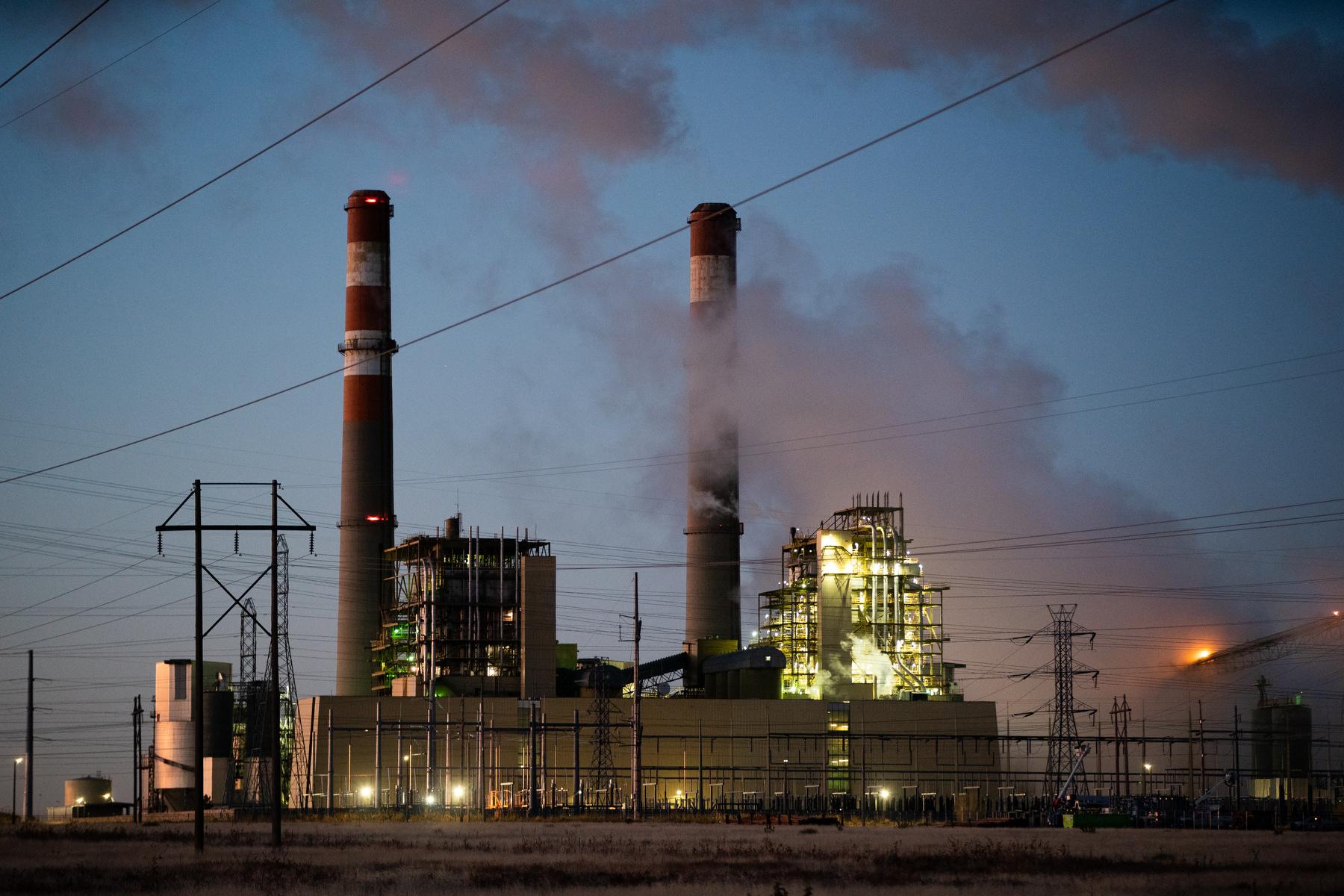
Updated with comment from an attorney representing Boulder County, 9:48 a.m., April 10, 2025.
President Trump signed an executive order Tuesday targeting state and local climate laws that could potentially target Colorado’s ambitious plans to curb planet-warming greenhouse gas emissions.
But Governor Polis and Will Toor, head of the state’s energy office, said Colorado would keep pursuing climate-friendly policies and a transition to renewable energy. A separate order signed Tuesday by President Trump aimed to revive the nation’s coal industry.
“These orders that trample states’ rights, should they be enforced, and this backward-looking approach would cost Coloradans money and devastate our environment,” Gov. Polis said in a statement. “We are committed to delivering less expensive, reliable electricity and protecting Colorado’s air, water and cherished landscapes, and supercharging our energy mix to meet our 100 percent clean energy goal – a goal we are on path to reach by 2040 without this overreach of the federal government.”
One Trump order directs Attorney General Pam Bondi and other executive branch heads to identify state climate laws that impede energy development in oil and gas but also geothermal and critical mineral projects. The order directs them to identify and challenge state laws that might address climate change, environmental justice, carbon taxes, greenhouse gas emissions or financing goals that aim to shift investments away from fossil fuels.
The move is a significant, albeit legally-dubious salvo in the Trump administration’s efforts to ramp up fossil fuel production and reverse climate change policies enacted under prior administrations. The order also calls out lawsuits pursued by states that seek damages from fossil fuel companies.
Michael Gerrard, director of the Sabin Center for Climate Change Law at Columbia University, said in an email that the order has no legal effect and faces steep hurdles to actually blocking state and local policies.
“The President does not have the authority to block state laws or lawsuits,” Gerrard wrote.
The Justice Department would instead have to join lawsuits that challenge state climate laws, Gerrard said. Individual judges would have to sign off on that addition, and then actually decide whether the government’s arguments were persuasive, he added.
State climate actions are extensive and likely not easily reversible
Colorado has enacted ambitious climate goals through state law. In 2019, lawmakers passed a climate action plan, which now requires the state to cut emissions 26 percent by 2025, 50 percent by 2030, 90 percent by 2040 and 100 percent by 2050 – all measured against the state’s emissions levels in 2005.
Last week, CPR News reported Governor Polis is pushing a bill to require Colorado to shift to using 100 percent clean energy by 2040, a decade sooner than the current plan.
Other laws have ordered statewide utilities like Xcel Energy to submit plans to stop generating electricity from fossil fuels in favor of renewable energy. Every coal-fired power plant in the state is now scheduled to shut down by 2031.
Toor, the energy office director, said that producing electricity from coal costs more than certain clean-energy options, which is in part why utilities are phasing out its use
“Coloradans and the free market are driving the switch to low-cost renewable energy, not the overreach of government picking winners and losers,” Toor said in a statement. “This executive order does not change either the constitution or federal law, both of which clearly give Colorado and other states the right to pursue clean air, climate action, and affordable electricity whether President Trump supports these goals or not.”
Another state law from 2023 ordered utilities to start piloting alternatives to natural gas-powered heating and cooling systems to help cut down on greenhouse gas emissions.
“We've worked closely with industry to craft workable solutions and have made significant progress towards our climate goals,” said State Senator Lisa Cutter (D-Jefferson County) in a statement.
“To upend this work now will set us back in protecting Colorado’s people, air, land and water while creating uncertainty for business and community,” Cutter said.
In 2018, Boulder County sued Exxon Mobil and Suncor Energy for allegedly misleading the public about the threats presented by climate change. The County is seeking damages from the companies to pay for the costs of natural disasters like floods and wildfires, which have grown more severe and frequent due to global warming.

Marco Simons, an attorney representing Boulder County, said neither the constitution nor federal statutes bars the county's lawsuit. "The President's Executive Order does not change that, and it has no legal weight," he said.
Trump’s order specifically targets New York and Vermont laws that require fossil fuel companies to pay for some of the damages from climate change. The order also attacks California’s cap-and-trade system, which allows companies to trade how much they’re allowed to pollute.
The U.S. Climate Alliance, which bills itself as a bipartisan coalition of 24 governors, slammed the order’s legality and intent.
“The federal government cannot unilaterally strip states’ independent constitutional authority,” wrote New York Governor Kathy Hochul and New Mexico Governor Michelle Lujan Grisham in a statement.
“We will keep advancing solutions to the climate crisis that safeguard Americans’ fundamental right to clean air and water, create good-paying jobs, grow the clean energy economy, and make our future healthier and safer.”









